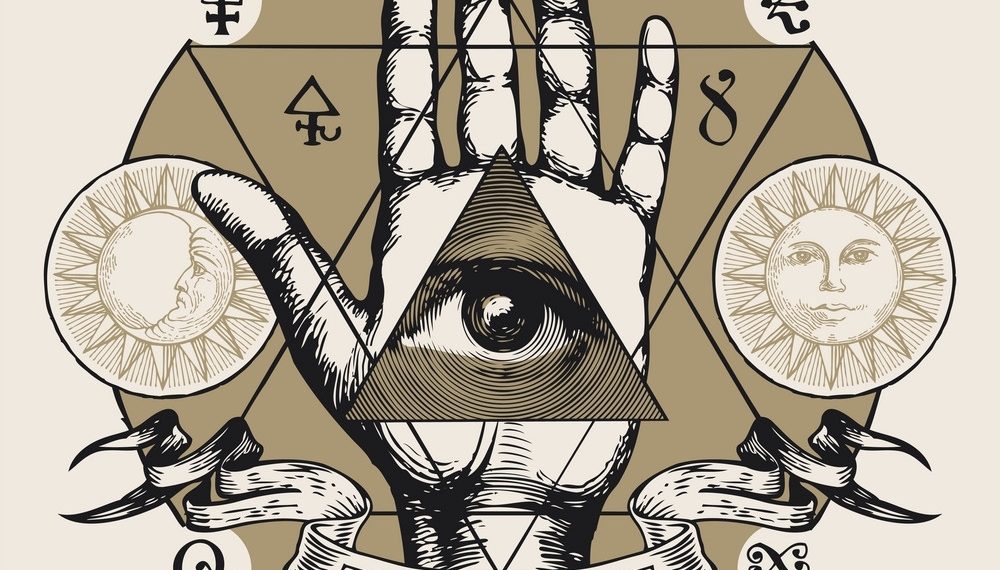Sumer was an ancient civilization of non-Semetic people living in southern Mesopotamia, what is now modern-day Iraq, during the Early Bronze Age.
Though the historical record only goes as far back as 2900 BC, Sumerian society is generally understood to have existed between 5300-1940 BC, well before the Biblical era. Unsurprisingly, early Christian texts draw many parallels to the Sumerian creation-myth. To understand the overlap, one only need understand the timeline under which the Tanakh – the first five officially canonized books of the Bible – were compiled. Genesis, for example, is generally thought to have been compiled from three sources (based on the three names for God in the first few chapters of Genesis: YHWH [the unpronounceable name of God, or LORD]; Elohim; and God), which were committed to writing based on hundreds of years of oral retelling prior between 1500-500 BC.
Sumerians had unique patron deities for their hundreds of city-states; there was no “state-mandated” religion. The major deities the Sumerians worshiped were:
An: meaning “sky” in Sumerian; An was the abstract god of heaven.
Ki: meaning “Earth” in Sumerian; the consort of An
Enki: the god of beneficence, ruler of the freshwater depths beneath Ki, and bringer of the arts, humanities, sciences, industry and law to mankind
Enlil: ruler of the ghost-lands, and bringer of spells and rituals to mankind, which spirits of good and evil are forced to obey
Inanna: the deification of the morning and evening star, known today as the planet Venus
Utu: the sun-god
Sin: the moon-god
This chart graphs the geneaology of the Sumerian gods.
Enki and the Great Flood
The earliest written form of the Sumerian creation myth discovered so far comes from an incomplete tablet dated to 1600 BC, called the Eridu Genesis.
“Where the tablet picks up, the gods An, Enlil, Enki and Ninhursanga create the black-headed people and create comfortable conditions for the animals to live and procreate. Then kingship descends from heaven and the first cities are founded: Eridu, Bad-tibira, Larsa, Sippar, and Shuruppak.
After a missing section in the tablet, we learn that the gods have decided not to save mankind from an impending flood. Zi-ud-sura, the king and gudug priest, learns of this. In the later Akkadian version, Ea, or Enki in Sumerian, the god of the waters, warns the hero (Atra-hasis in this case) and gives him instructions for the ark. This is missing in the Sumerian fragment, but a mention of Enki taking counsel with himself suggests that this is Enki’s role in the Sumerian version as well.
When the tablet resumes it is describing the flood. A terrible storm rocks the huge boat for seven days and seven nights, then Utu (the Sun god) appears and Zi-ud-sura creates an opening in the boat, prostrates himself, and sacrifices oxen and sheep.
After another break the text resumes: the flood is apparently over, the animals disembark and Zi-ud-sura prostrates himself before An (sky-god) and Enlil (chief of the gods), who give him eternal life and take him to dwell in Dilmun for “preserving the animals and the seed of mankind”. The remainder of the poem is lost.” – Wikipedia
The story has parallels to the story of Noah and the Great Flood.
Enki and the Tower of Babel
Once upon a time, there was no snake, there was no scorpion,
There was no hyena, there was no lion,
There was no wild dog, no wolf,
There was no fear, no terror,
Man had no rival.In those days, the land Shubur-Hamazi,
Harmony-tongued Sumer, the great land of the me of princeship,
Uri, the land having all that is appropriate,
The land Martu, resting in security,
The whole universe, the people well cared for,
To Enlil in one tongue gave speech.
Then the lord defiant, the prince defiant, the king defiant,
Enki, the lord of abundance, whose commands are trustworthy,
The lord of wisdom, who scans the land,
The leader of the gods,
The lord of Eridu, endowed with wisdom,
Changed the speech in their mouths, put contention into it,
Into the speech of man that had been one.
Sumerian cuneiform describing the nam-shub of Enki
It tells of Enki, who “changed the speech” of the population to “put contention into it.” This, of course, is similar in content to the Babel legend, where God disrupted the linguistic unity of the people in order to stop the Tower from being built.


